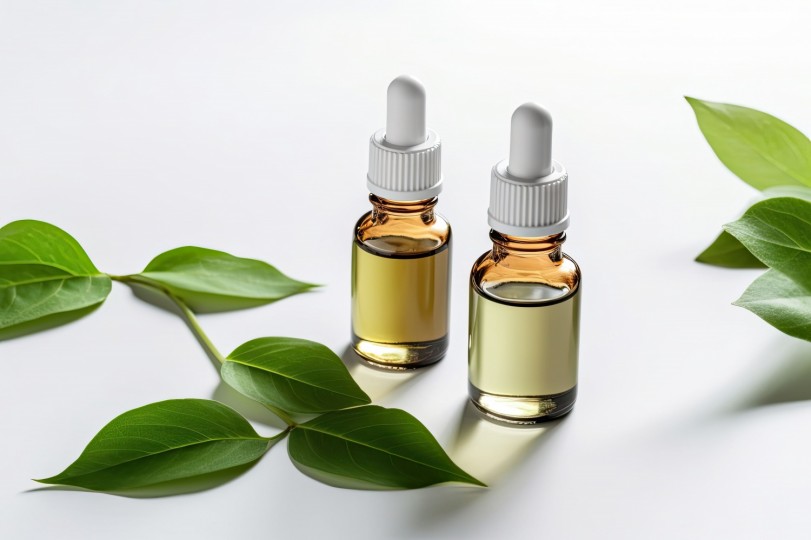
Tea tree oil is a versatile ingredient frequently incorporated into personal care, skincare, and hair care products, including soaps, lotions, deodorants, shampoos, and hair masks.
Originating from the steam distillation of tea tree leaves, typically found in the swampy southeast coast of Australia, this oil has a rich history of traditional use by Aboriginal communities as both an antiseptic and herbal medicine.
According to the United States National Center for Complementary and Integrative Health, tea tree oil has garnered attention for its potential benefits to the skin and hair. It possesses antiseptic properties, making it a popular choice for addressing various conditions such as acne, athlete's foot, lice, nail fungus, cuts, mite infections around the eyelids, and insect bites.
In modern applications, tea tree oil continues to be prized for its natural efficacy in tackling a range of dermatological concerns. Its inclusion in skincare formulations is often aimed at promoting healthy skin and treating itchiness and wounds, while in hair care products, it may help address issues like dandruff or scalp irritation.
Tea Tree Oil Benefits for Skin
1. Combats acne
Tea tree oil possesses antibacterial properties that target the bacteria responsible for acne breakouts. Additionally, its anti-inflammatory properties help reduce redness and swelling associated with acne, promoting clearer skin.
According to Healthline, certain types of acne are attributed to bacteria that have developed resistance to conventional antibiotics. Scientific analysis of tea tree oil revealed that its application not only decreased bacterial activity but also resulted in their elimination within laboratory settings, typically within 4 to 6 hours.
2. Boosts wound healing and treats minor cuts
Tea tree oil is known to have antiseptic and antimicrobial properties that cleanse the wound, making it effective in disinfecting minor cuts and abrasions. In a small-scale study, the inclusion of tea tree oil alongside conventional wound treatment resulted in shorter healing times for the majority of the participants.
3. Soothes itchy skin
Due to its anti-inflammatory properties, tea tree oil may alleviate itchy skin. A study cited in The Archives of Dermatological Research compared the effectiveness of zinc oxide and clobetasone butyrate to tea tree oil in individuals with dermatitis. The findings indicated that tea tree oil was more effective in reducing allergic dermatitis compared to the other topical treatments.
4. Controls underarm odor and athlete's foot
The antibacterial properties of tea tree oil make it effective in killing odor-causing bacteria in the underarms, thus controlling body odor. Similarly, it is believed to combat the fungi responsible for athlete's foot, helping to alleviate symptoms like itching and irritation.
Tea Tree Oil Benefits for Hair
1. Reduces hirsutism
Some studies suggest that tea tree oil helps inhibit excessive hair growth or hirsutism.
In research published in the Journal of Endocrinological Investigation, women experiencing hirsutism were administered a lavender and tea tree oil spray twice daily for three months on affected areas. By the study's conclusion, a reduction in hair diameter was observed. The researchers suggested that these oils could be beneficial in addressing hirsutism.
2. Fights dandruff
Tea tree oil can target the fungus that causes dandruff, effectively reducing flakiness and itching associated with this scalp condition. According to hair care brand Head & Shoulders, it effectively eliminates the greasiness that exacerbates dandruff and inhibits the growth of the fungus responsible for dandruff.
3. Prevents hair loss
Applying diluted tea tree oil sparingly along the length of your hair can assist in preventing the accumulation of chemicals and dead skin, which then promotes healthy, moisturized hair, facilitating normal growth and reducing the likelihood of hair loss, as per Healthline.


